
Here is a list of some recent trials that launched within the cancer space in September.

Ryan McDonald, Associate Editorial Director for CURE®, has been with the team since February 2020 and has previously covered medical news across several specialties prior to joining MJH Life Sciences. He is a graduate of Temple University, where he studied journalism and minored in political science and history. He considers himself a craft beer snob and would like to open a brewery in the future. During his spare time, he can be found rooting for all major Philadelphia sports teams. Follow Ryan on Twitter @RMcDonald11 or email him at [email protected].

Here is a list of some recent trials that launched within the cancer space in September.
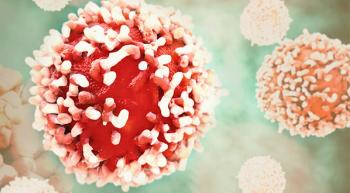
Findings from a randomized phase 3 study showed that adding neoadjuvant Tecentriq to a chemotherapy regimen of Abraxane, Adriamycin and Cytoxan in patients with stage 2 or 3 triple-negative breast cancer significantly improved pathologic complete responses, compared with placebo plus chemotherapy.

On social media, CURE® recently asked its readers to share how they deal with the cognitive dysfunction that can come about from cancer treatment.

“This randomized clinical trial found that compared with the conventional anthracycline and docetaxel regimen, the paclitaxel-plus-carboplatin regimen may be an alternative adjuvant chemotherapy strategy for patients with operable TNBC,” the authors wrote.

Specific disease characteristics of, and treatments for, multiple myeloma were not associated with increased mortality risk in patients with multiple myeloma who developed COVID-19, according to data published in Journal of Hematology & Oncology.
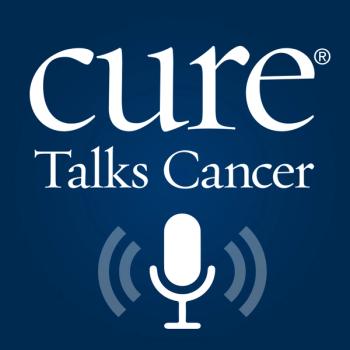
In this episode of the “CURE Talks Cancer” podcast, we spoke with an expert about some of the possible causes of penile cancer, as well as why research in the field is severely lacking and why it’s so important to inform the public about what to look for in terms of signs and symptoms of this disease.

Younger and female patients with a variety of cancer types tend to have strong immune systems that naturally fight an array of cancer cells. The tumor cells the immune system doesn’t destroy are the most evasive, both to the immune system and medications that boost its activity, and this makes checkpoint inhibitor immunotherapy less effective in this population.

CURE® compiled a roundup of five recent reports patients with skin cancer may have missed.

The data demonstrated that the addition of Ninlaro to Revlimid and dexamethasone led to a 13.5-month increase in median progression-free survival, compared with placebo. However, the data failed to meet the threshold for statistical significance.

On social media, CURE® recently asked its readers to share how they overcome the fear that comes with cancer. Here, we share some of their responses.

“With education and awareness to defeat the stigma, resources for those diagnosed, and innovative research toward cures, we can end colorectal cancer in our lifetime,” Michael Sapienza, CEO of Colorectal Cancer Alliance, said in a statement.

The study results also showed that older age was significantly associated with lower cancer genetics knowledge, which, according to a post-doctoral research fellow at Dana-Farber Cancer Institute, is important because older adults may serve as a resource for family members who seek information about their family's health history.
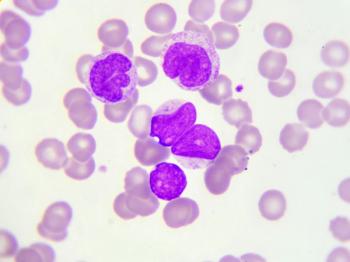
Forty percent of patients with triple-refractory multiple myeloma achieved a response after receiving 60 millicurie (a unit of radioactivity) or greater of CLR 131.

The FDA based its decision on data from a phase 3 trial which showed that adding plinabulin to Neulasta significantly improved the rate of severe chemotherapy-induced neutropenia.

There have been several drug approvals and updates from the Food and Drug Administration (FDA) in the cancer space over the last several weeks.

The Food and Drug Administration’s warning comes weeks after Genentech, the manufacturer of Tecentriq, issued a press release noting that the IMpassion131 trial failed to meet its primary endpoint of improving progression-free survival in patients with triple-negative breast cancer.

“Our hope is that this will enable us to reduce or eliminate late effects of treatment that persist into the survivorship years,” Dr. Peter Cole, of Rutgers Cancer Institute of New Jersey, said in a press release.

On social media, CURE® recently asked its readers to share the most surprising thing that’s changed in their life since receiving a cancer diagnosis. Here, we share some of their responses.

Throughout the summer, CURE® highlighted many simple and healthy recipes that the oncology dietitians from the John Theurer Cancer Center put together for cancer survivors and patients. Here, we share some of those recipes.

The Food and Drug Administration granted a priority review to the new drug application for melflufen in combination with dexamethasone for adults with relapsed and refractory multiple myeloma (RRMM) who had previously received multiple lines of therapy.
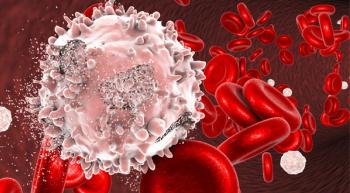
“Moving forward, (bendamustine and Rituxan) will likely become a common backbone for the incorporation of other cytotoxic or novel agents in an attempt to further improve outcomes while maintaining an effective, safe, and ideally outpatient regimen for MCL,” the authors wrote.

The approval for patients with acute myeloid leukemia was based on data from the phase 3 QUAZAR AML-001 trial, which demonstrated that patients who received Onureg achieved a median overall survival of 24.7 months compared to 14.8 months for those who received placebo.

On social media, CURE® recently asked its readers what their thoughts were on the medical use of cannabis. Here, we share some of their responses.

A roundup of the latest news and updates for patients with acute myeloid leukemia from CURE®.
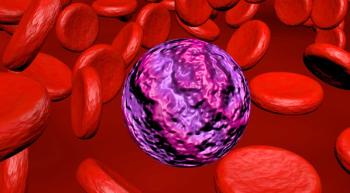
CURE® compiled a roundup of five recent reports patients with lymphoma may have missed.

Arzerra will be available at no cost to patients via an oncology patient access program which will be facilitated through Patient Access Novartis Oncology.

Nearly half (48%) of the patients reported experiencing significant fatigue following their surgery. Thirty-nine percent of the patients still reported significant fatigue one year following their surgery.

The test was also approved as a companion diagnostic test to determine which select patients with metastatic castration-resistant prostate cancer could benefit from Rubraca, as well as for three frontline TKIs in patients with non-small cell lung cancer.

Here is a list of the recent trial initiations that occurred within the cancer space in August.

“Through patients’ eyes, augmented intelligence may improve health care quality but should be implemented in a manner that preserves the integrity of the human physician-patient relationship,” the authors wrote.